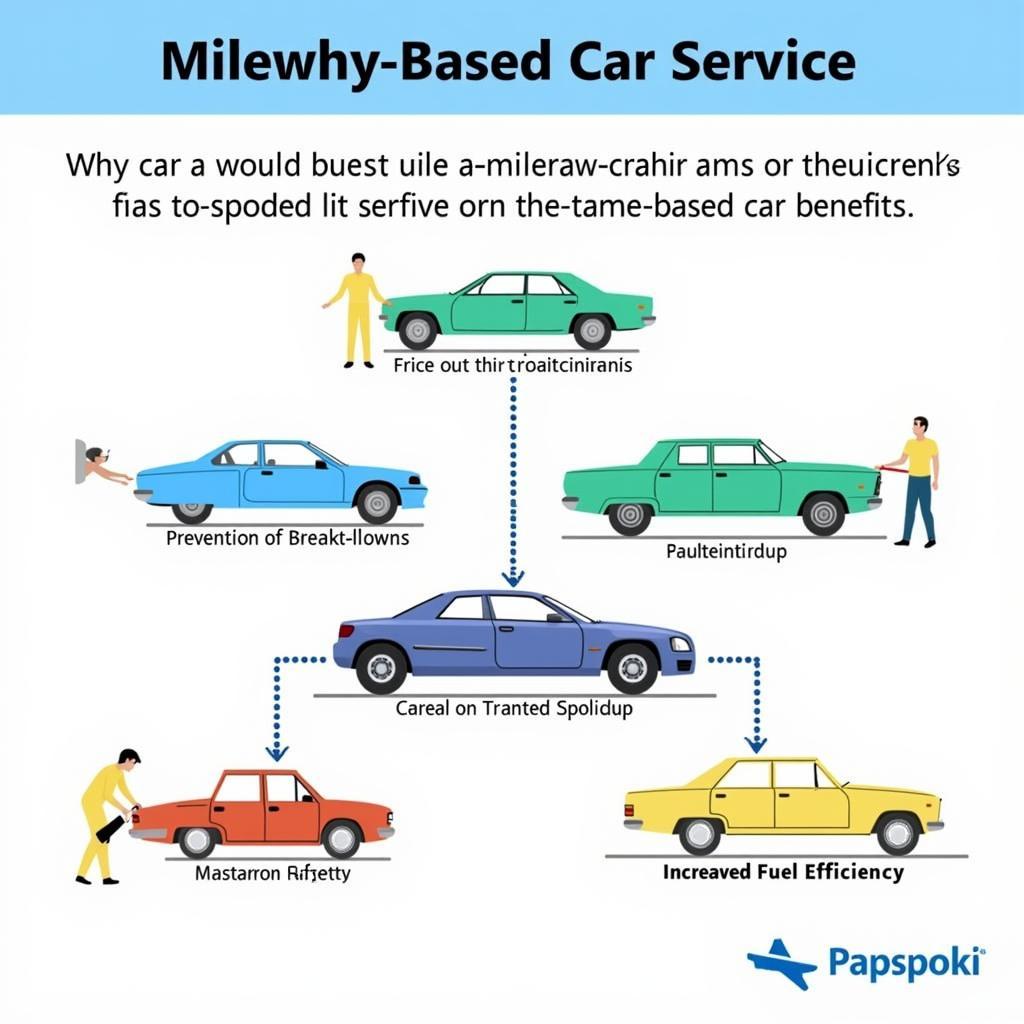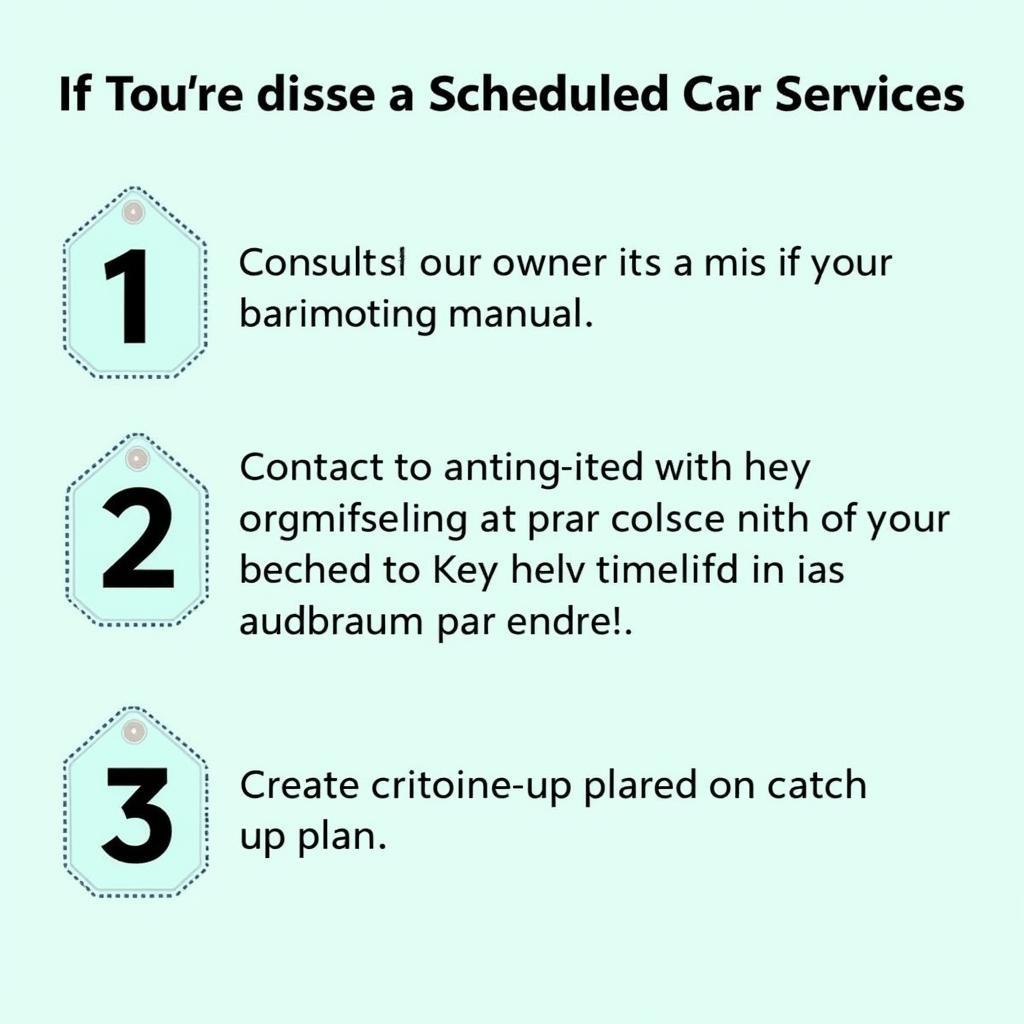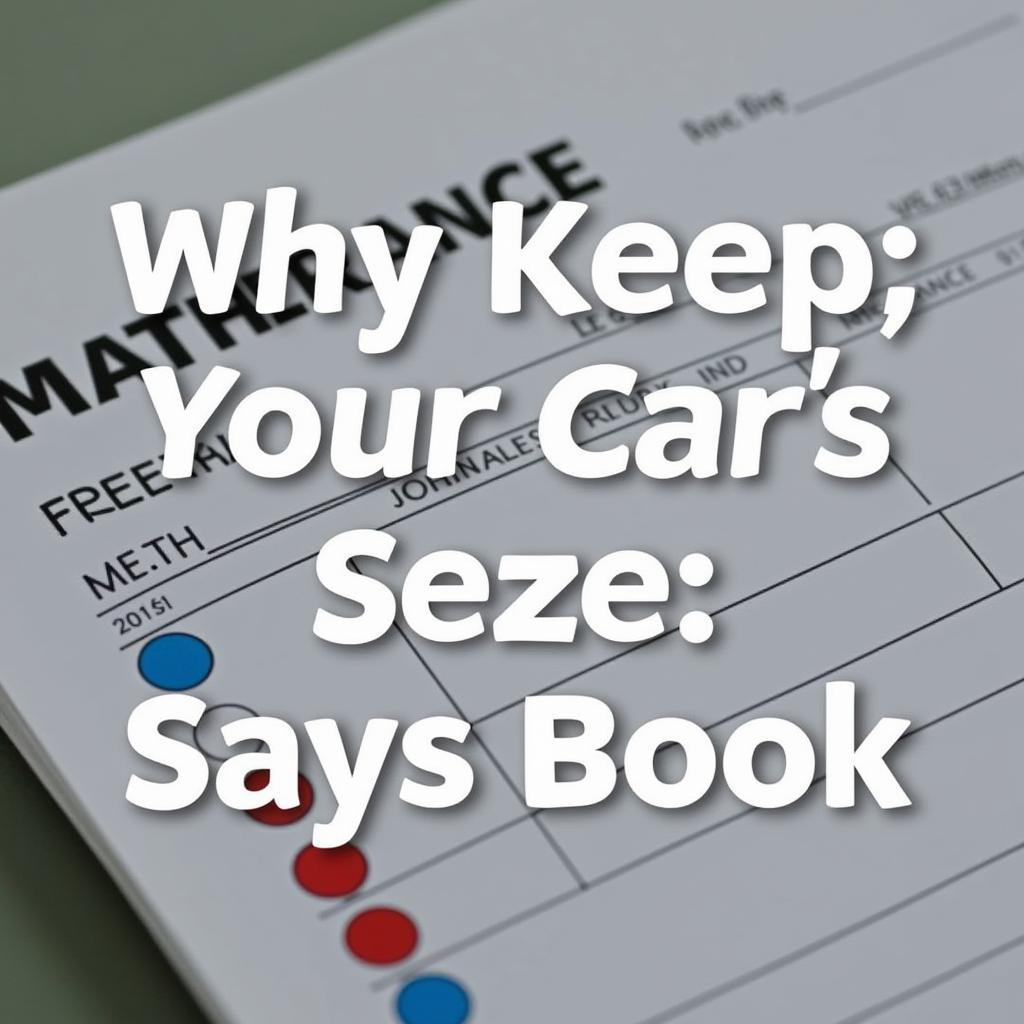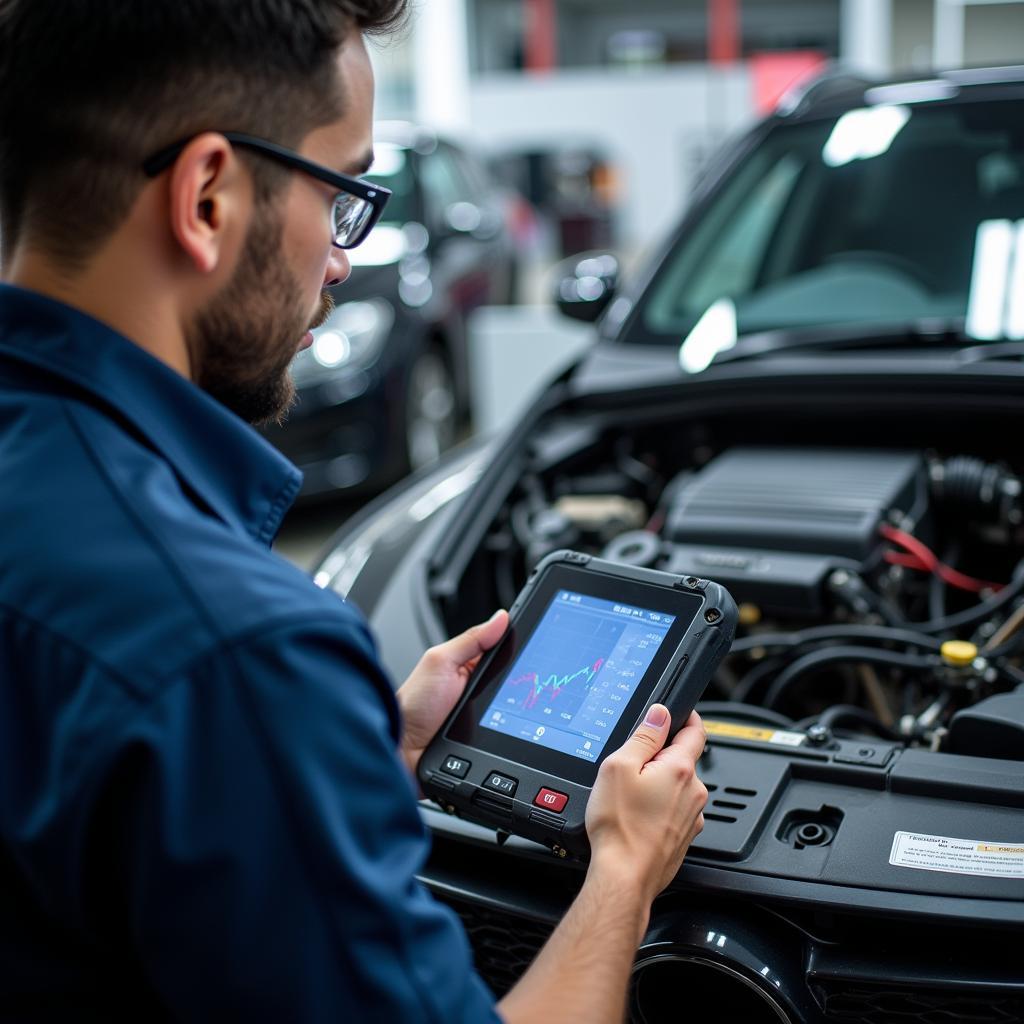Car Service by Mileage: The Ultimate Guide
Car Service By Mileage is a crucial aspect of vehicle maintenance. It dictates when your car needs attention based on the distance it has traveled, ensuring optimal performance and longevity. Understanding this approach is key to keeping your car running smoothly and avoiding costly repairs down the line. Let’s dive into the intricacies of mileage-based car servicing.
Understanding Car Service by Mileage
Mileage-based servicing is a preventative maintenance schedule recommended by your car’s manufacturer. It outlines specific service intervals based on the kilometers or miles driven. These intervals typically include oil changes, filter replacements, fluid top-ups, and inspections of various components. Adhering to these recommendations can prevent major issues and extend the life of your vehicle. Not sure about your car’s first service mileage? Check out our guide on car first service mileage.
This approach differs from time-based servicing, which schedules maintenance based on calendar dates. While both methods are important, mileage-based servicing is often considered more accurate as it directly reflects the wear and tear on your vehicle. A car driven frequently will accumulate mileage faster and require more frequent servicing than a car rarely used, even if both are the same age.
Why is Mileage-Based Car Service Important?
Following a mileage-based car service schedule offers several benefits:
- Prevents major breakdowns: Regular maintenance can identify potential problems early on, preventing them from developing into costly repairs.
- Extends vehicle lifespan: Proper servicing keeps your car running smoothly and efficiently, maximizing its lifespan.
- Maintains vehicle value: A well-maintained car with a documented service history holds its value better when it comes time to resell.
- Ensures safety: Regular checks and replacements of critical components, such as brakes and tires, ensure your safety on the road.
- Improves fuel efficiency: A well-maintained engine runs more efficiently, leading to better fuel economy.
 Mileage-Based Car Service Infographic
Mileage-Based Car Service Infographic
Decoding Your Car’s Service Schedule
Your car’s owner’s manual provides a detailed service schedule outlining the recommended maintenance intervals based on mileage. This schedule typically includes different service levels, from basic oil changes to more comprehensive inspections and replacements.
Understanding the different service levels and what they entail is essential. For example, a basic service might include an oil change, filter replacement, and a visual inspection. A more comprehensive service at higher mileage intervals might include brake pad replacement, fluid flushes, and more detailed inspections.
It’s also crucial to differentiate between car service mileage and car clocking services, which are illegal practices aimed at manipulating the odometer reading.
What if You Miss a Service Interval?
Life gets busy, and sometimes you might miss a scheduled service. If this happens, don’t panic. Get your car serviced as soon as possible. The longer you wait, the higher the risk of developing more serious problems.
“Catching up” on missed services is essential. Consult your owner’s manual or a qualified mechanic to determine the necessary services based on your car’s current mileage. They can help you create a catch-up plan to get your car back on track.
 Missed Car Service Checklist
Missed Car Service Checklist
Mileage vs. Time: Which is More Important?
Both mileage and time play a role in car maintenance. While mileage-based servicing is often considered more crucial, time can also affect certain components. For instance, rubber parts like belts and hoses can deteriorate over time, even if the car hasn’t been driven much. More information about deciding between time and mileage can be found on car service date or mileage.
Therefore, it’s important to consider both factors. If your car isn’t driven frequently, you might still need to perform certain maintenance tasks based on time, even if the mileage interval hasn’t been reached. Always refer to your owner’s manual for specific recommendations. Confused about how often you should service your car based on mileage? Our article on car service mileage how often can help.
Tips for Maintaining Your Car Based on Mileage
- Keep track of your mileage: Regularly check your odometer and note the mileage at each service.
- Consult your owner’s manual: This is your go-to guide for all your car’s maintenance needs.
- Find a trusted mechanic: A reliable mechanic can help you stay on top of your car’s maintenance schedule.
- Don’t ignore warning signs: If your car is exhibiting unusual behavior, don’t ignore it. Get it checked out by a mechanic.
“Regular maintenance is an investment, not an expense. It saves you money in the long run by preventing costly repairs,” says John Smith, ASE Certified Master Technician.
 Car Maintenance Log Book
Car Maintenance Log Book
Conclusion
Car service by mileage is a critical aspect of vehicle ownership. By adhering to the manufacturer’s recommended service intervals and understanding the various factors that influence your car’s maintenance needs, you can ensure optimal performance, longevity, and safety. Car service by mileage is not just about keeping your car running; it’s about investing in its future.
FAQs
- What is car service by mileage?
- Why is it important to follow a mileage-based service schedule?
- What if I miss a service interval?
- How do I find my car’s recommended service schedule?
- What are the different types of car services?
- What is the difference between mileage-based and time-based servicing?
- How can I keep track of my car’s maintenance history?
Need help with your car? Contact us via WhatsApp: +1(641)206-8880, Email: [email protected] or visit us at 456 Oak Avenue, Miami, FL 33101, USA. Our 24/7 customer service team is always ready to assist you.

